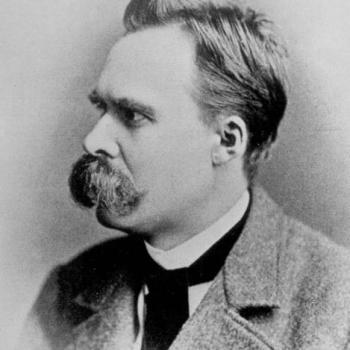Søren Kierkegaard’s requirements for those who would reform the Church are extraordinarily high and are meant to apply to very few people — he expects no such worthy reformers in his own age, though he would gladly be “all bows and deference to him, the extraordinary” (all citations from For Self Examination/Judge for Yourself! trans. Howard V. Hong and Edna H. Hong ([Princeton, 1990], p. 211). The model he holds up as the true reformer is Martin Luther, “only one solitary man … disciplined in all secrecy by fear and trembling and much spiritual trial for venturing the extraordinary in God’s name” (p. 213). Each aspect of this description is essential to what Kierkegaard requires of the reformer.
First, the reformer must be a single individual with “an immediate relationship with God” (p. 211). For Kierkegaard, Luther could not have been the reformer he was if he had been anything other than one solitary man — for instance, if he had been someone who defined himself primarily by social consensus and who shunned the wisdom found in prayerful solitude. God’s Word, and the introspection required to be shaped by it, cannot be heard if one falls prey to the sort of worldly communication “designed merely to jolt the senses or to stir up the masses, the crowd, the public, noise!” (p. 48). The heart requires silence to hear God.
Second, the reformer must be “disciplined in all secrecy by fear and trembling and much spiritual trial.” It should be clear to us now what Kierkegaard might mean by “in all secrecy.” The reformer’s heart should be in a personal relationship with God that can only be nurtured by silence. But we learn something more: the reformer is disciplined by something or someone external. Some radical form of transformation is required, attained from the intense humility and suffering of fear and trembling and spiritual trial.
Finally, only then, transformationally disciplined, is the reformer prepared for “venturing the extraordinary in God’s name.” Kierkegaard does not give any specific examples here of what venturing the extraordinary might look like, and this is perhaps intentional. For him, venturing reliance upon God is something that is qualitatively different from the categories of this world, requiring us to “relinquish probability,” which refers to our attachment to specific worldly outcomes (p. 100). Venturing is “eternally … your victory,” but “it is just as possible, precisely as possible, to fail as to succeed” (p. 100). The reformer, then, is equipped to venture the extraordinary in God’s name, but there is no guarantee that anything will go as envisioned. Disciplined by God in solitude and in fear and trembling, the reformer is in a position to refer all that happens to God’s authority, and to be free from dangerous earthly attachments that can jeopardize true, God-driven reformation.
It is not surprising that Kierkegaard, with such a high view of the vocation of the reformer, warns very strongly against the dangers of those who bring false reform. He writes that “dabblers in reforming are more corrupting than the most corrupt established order, because reforming is the highest and therefore dabbling in it is the most corrupt of all” (p. 212). This view might seem extreme, but if a reformer must be thoroughly transformed by God in fear and trembling before being in a position to do any reforming, the corruption is that the dabbler’s reformation comes from human and not divine authority. Reformation on human terms can introduce some troubling and self-centered motivations, for instance with those people who would reform “in such a way that reforming becomes a pleasure, a profit, etc., instead of its being in the highest sense a matter of being willing to reform, that it means bringing sacrifices, being willing to suffer” (p. 131).
[Keep reading. . .]















